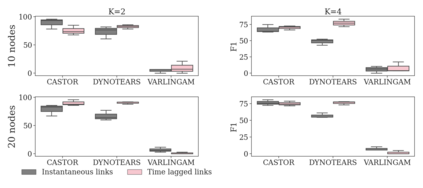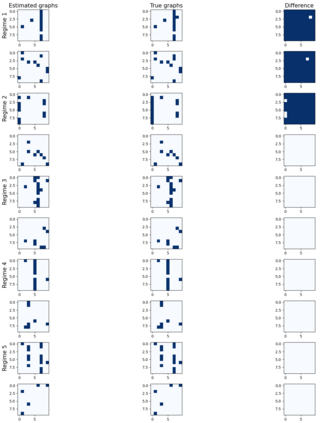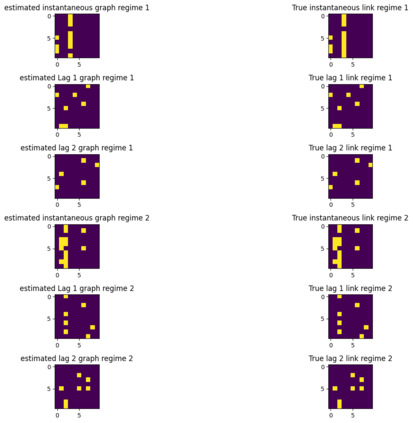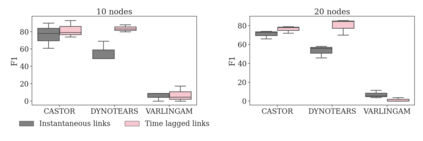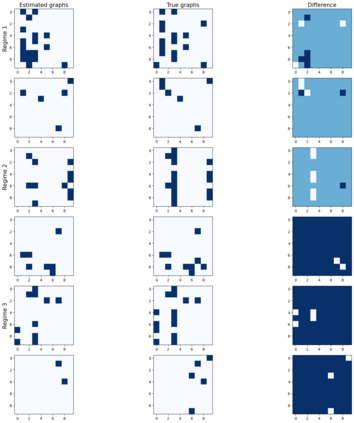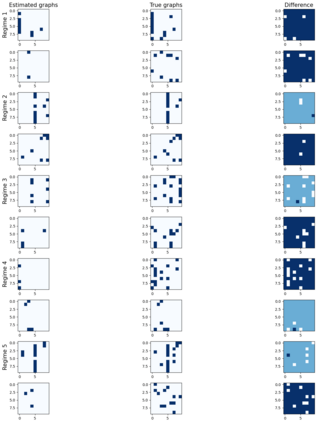The task of uncovering causal relationships among multivariate time series data stands as an essential and challenging objective that cuts across a broad array of disciplines ranging from climate science to healthcare. Such data entails linear or non-linear relationships, and usually follow multiple a priori unknown regimes. Existing causal discovery methods can infer summary causal graphs from heterogeneous data with known regimes, but they fall short in comprehensively learning both regimes and the corresponding causal graph. In this paper, we introduce CASTOR, a novel framework designed to learn causal relationships in heterogeneous time series data composed of various regimes, each governed by a distinct causal graph. Through the maximization of a score function via the EM algorithm, CASTOR infers the number of regimes and learns linear or non-linear causal relationships in each regime. We demonstrate the robust convergence properties of CASTOR, specifically highlighting its proficiency in accurately identifying unique regimes. Empirical evidence, garnered from exhaustive synthetic experiments and two real-world benchmarks, confirm CASTOR's superior performance in causal discovery compared to baseline methods. By learning a full temporal causal graph for each regime, CASTOR establishes itself as a distinctly interpretable method for causal discovery in heterogeneous time series.
翻译:暂无翻译


